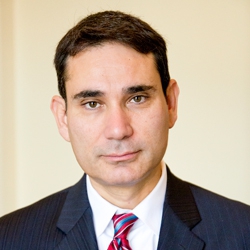EL PASO, Texas (Border Report) – As state legislatures rushed to ratify Mexico’s new judicial reform, business leaders and border experts were quick to express concerns over loss of investment and threats to democracy.
The Mexican congress early Wednesday approved a constitutional amendment to elect judges by popular vote, reduce the Supreme Court from 11 to nine justices and to do away with a judiciary council that ensured autonomy and disciplined judges for ethical violations.
In a matter of hours, the state legislatures of Oaxaca, Quintana Roo, Tabasco, Veracruz and Tamaulipas went along with the sweeping reforms. One U.S. analyst expects the amendment will gain the approval of the 17 needed states by Thursday or Friday morning at the latest.
Then begins the drafting of secondary laws to implement the amendment. That could lead to businesses and individuals losing the right to appeal government decisions in civil courts and the president of Mexico becoming immune from having the Supreme Court challenge his or her executive orders.
“The most troubling issue is the judiciary no longer being able to check administrative decisions. Individuals and companies will no longer be able to turn to the courts to contest an executive action, for example, if the government expropriates land or natural resources that belong to a company,” said Tony Payan, director of the Center for the U.S. and Mexico at Rice University’s Baker Institute for Public Policy.

If the courts’ right to judicial review is curtailed as amendment supporters proposed, the Supreme Court will no longer review executive orders and the sitting president and Congress can do “anything they want” without those checks and balances, Payan said.
Both Payan and Thor Salayandia, board member of the Mexican Chamber of Industry, said this scenario is already prompting entrepreneurs in Mexico, the United States and other industrialized nations to pause future investments and, in some cases, think about moving their operations elsewhere.
“A lot of things are about to change. This will be a different Mexico,” Salayandia said. “It’s already difficult to secure the foreign investment that we depend on and now, certainly it will decrease, and any expansions will be halted. Investors are being placed in a very difficult position.”
The analysts expect the secondary laws to be in place before a new president takes over Oct. 1.
The judiciary has been a thorn in the side of the Andres Manuel Lopez Obrador administration and his ruling MORENA political party. The courts, for instance, prevented the newly formed Mexican National Guard, which is involved in police actions, from being under the military. But with MORENA having won a commanding majority in the next Congress and with Lopez Obrador being able to hand the reins of the country next month to his protégé Claudia Sheinbaum, the president made his move and twisted enough arms to get the judicial reform done.
The other major concern is that electing judges could result in more corruption, not less, Payan said.
“There is no safeguard as to the qualifications to run for office. If the standards are not sufficiently high, they will not prevent organized crime from trying to impose judges, much like they influence the election of some mayors and governors,” he said. Mexico “has a very corrupt political class that takes money from companies, organized criminals and individuals who bribe them to do some things. Judges are going to be more susceptible to that kind of corruption that sells justice to the highest bidder.”
Juarez Mayor Cruz Perez Cuellar, a member of MORENA, celebrated the approval of judicial reform and said such fears are unfounded.
“I don’t take anything away from the protesters. We live in a democracy,” he told Border Report news partner ProVideo. “But a majority of Mexicans went to the polls and determined what direction they wanted us to take. Any change brings resistance, but in time it will become evident the reform will be good for the country. It’s nothing to fear by the U.S.; it’s just breathing new air into our court system.”







